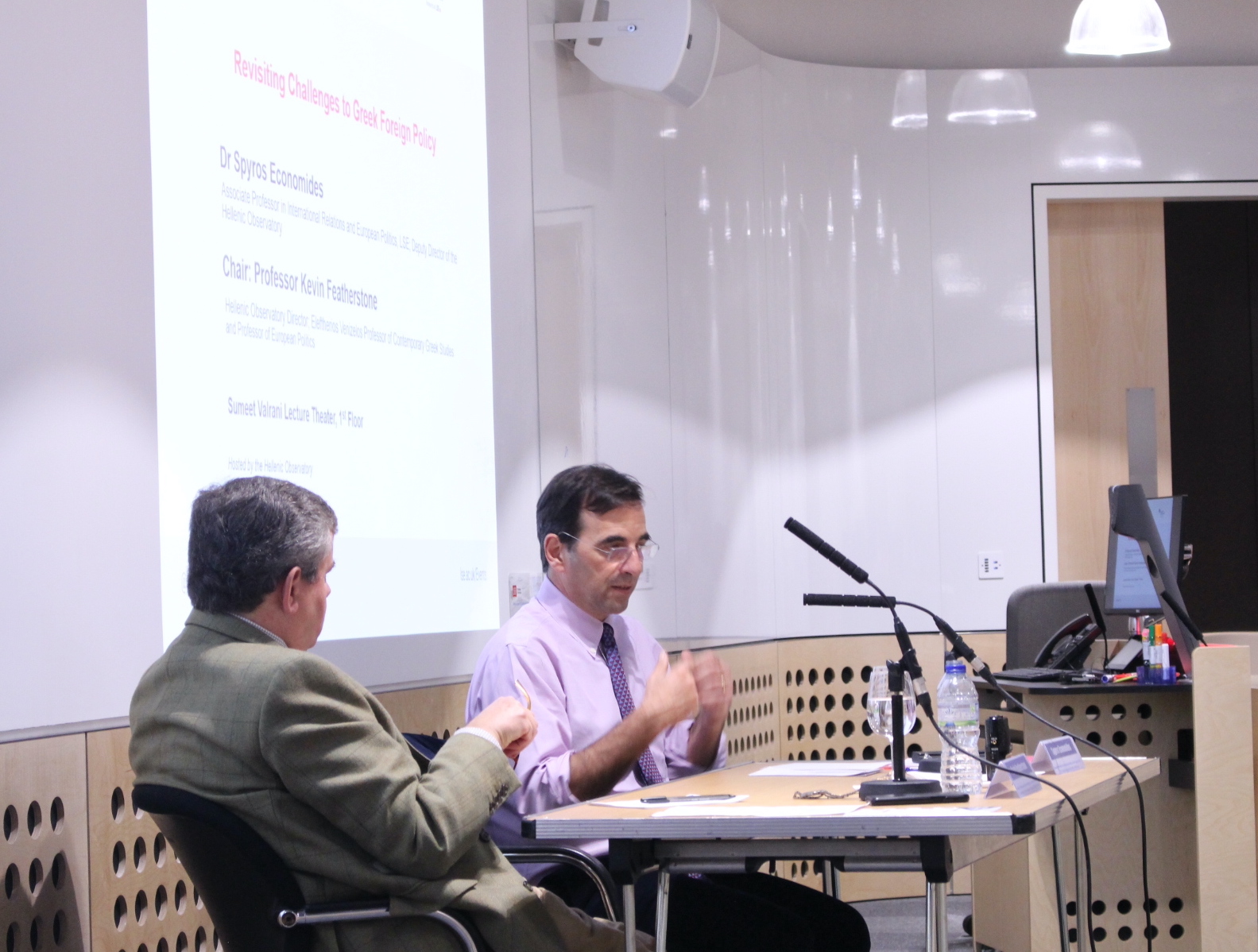
Q: What is your favourite thing at the Hellenic Observatory?
Without a doubt it’s the people that I have the pleasure of working with in the Hellenic Observatory who are the highlight. It’s a tight knit, hard-working and fun-loving group! In a university environment which has become increasingly atomized, it is a breath of fresh air to ‘come into the office’ and find a group of colleagues, who have common cause, who all pull together, and are also able to behave and interact in a human as well as professional context. The fact that I have committed myself to working for the HO, on a voluntary basis, for the best part of twenty years, is testament to a very special working environment: the people definitely do make the place.
Q: What is your favourite place on campus?
Wright’s Bar. It is an old school independent café, which is semi-detached physically from the LSE, located right next door to the Old Building entrance in Houghton Street. So, while it is not institutionally part of the LSE it is an institution of the LSE for those of us who have been here for a long time. It is one of the remaining links with the LSE of yesteryear which still retains its original character. Everyone uses this café: students and academic staff, builders, bus drivers and police officers. It has catered bacon sandwiches and tea to all and sundry, without discrimination, for over 40 years. It is timeless and will always be for me a cornerstone of the LSE campus.
Q: When you were a student, how did you envision your future?
I didn’t. I was uncertain about what I wanted to do with life apart from the abstract and idealistic, ‘I want to be happy’. The one thing I was sure about was that despite having studied International Relations I was not going to follow in my father’s footsteps and attempt to join the Greek diplomatic service! I had lived that peripatetic life and was going to be no one’s mouthpiece. It took me some time to figure out what might be a career path and where this might be. It was only when I had embarked on my PhD that it dawned on me that an academic career might afford a degree of independence of thought and action which might not be available elsewhere. And London was the place for it. The fact that I can’t count or ‘close a deal’ also precluded a City job…
Q: If you could have dinner with a famous Greek person, dead or alive, who would it be and why?
Normally it would be a sporting figure: one of Panathinaikos heroic 1971 European Cup Finalist team perhaps? But I have to behave in more mature and serious manner for this ‘interview’. So, I’ll opt for Thucydides so I can engage him on history and international politics, heroism and Hellenism, the enduring nature of war, and how to research and write a masterpiece.
Q: Can you share something surprising about yourself?
I’ve given up driving!
Q: What are you currently reading?
I am currently reading the biography of Margaret Thatcher by Charles Moore. This is a model of the genre: it is beautifully written and captures both the person and politician, and their socio-political environment, in a vivid and gripping way. It tells a story but really brings it to life. Personally, not only am I learning about the politics of the person and their era, but it is also evocative of my introduction to life in the UK and engagement with the political world of a country which was to become my home for 40 years. Thatcher may be considered a highly divisive figure but her legacy is such that she cannot be ignored and this biography lays out in a masterful manner why not.
Q: What activities have you taken up since COVID-19 and the restrictions?
Golf. It is such a technical and frustrating sport, that when you’re trying to play it you have to concentrate so hard that you forget about everything else, especially academia...